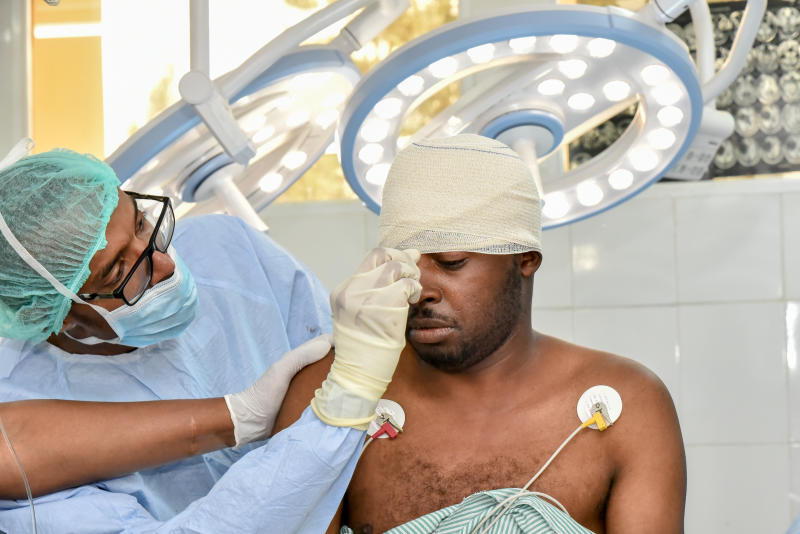×
The Standard e-Paper
Join Thousands Daily

Doctors recently gave a new lease of life to a man suffering from severe headaches and seizures when they removed a tumor from his head.
But the brain surgery that Joseph Karuri underwent on October 4 was different because he remained awake during the entire procedure.